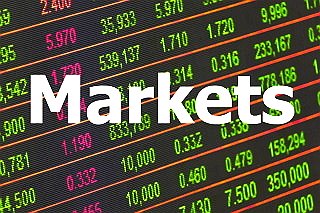Weekly Market Review & Analysis For July 11, 2022

The market was turbulent for another week which started by selling for three consecutive days and concluded with a rally that helped lift the S&P 500 off its lowest levels in almost four weeks. However, the benchmark index lost 0.9 percent during this week. The Nasdaq (-1.6 percent) declined while the Dow (-0.2 percent) ended the week with a smaller loss over the course of the week.
The market started this week on a cautious note due to the uncertainty before Wednesday's release of the June CPI (Consumer Price Index). Additionally, worries about global growth were still weighing on the sentiment. Spanish Prime Minister Sanchez cautioned that his country is likely to experience less growth than anticipated in the coming months.
Shell's Chief Executive Officer (CEO) is adamant that Europe could be forced to cut back on energy during the upcoming winter. There was a report that a rising number of people in China refused and boycotted to pay their mortgages.
The political turmoil that erupted in Italy after Prime Minister Draghi could not win his support from a key coalition partner briefly led the Eurodollar to fall below parity to the U.S. dollar and helped the U.S. Dollar Index secure its third consecutive week of gains with the index hitting its highest price level of 107.98 since September of 2002.
Wednesday market saw the publication of the July Consumer Price Index report: It showed a 1.3 percent increase in month-over-month inflation that boosted the yr/yr rate to 9.1 percent, a mark not seen since late in 1981. The Index for food was growing by 9.1 percent over the previous year, and the Index for energy was up 41.6 percent year-over-year. The June Producer Price Index report didn't do much to ease concerns about inflation. The Producer Price Index rose 1.1 percent over the month, pushing the year-over-year index level to 11.3 percent, which was just less than the peak of March print of 11.5 percent.
Bank earnings for the second quarter began reported in the last part of the week, starting with disappointing earning data for JPMorgan Chase and Morgan Stanley. The comments of JPMorgan Chase CEO Dimon attracted a lot of attention following his concerns about the unprecedented tightening of the market in the wake of massive global instability.
Market summary
The market ended its week with a positive outlook with some help in the initial University of Michigan Consumer Sentiment survey from July. It indicated a rise in confidence due to a drop in inflation expectations following the recent decline in energy prices. This is a positive sign but may be reversed quickly if energy prices continue to rebound.
West Texas Intermediate (WTI) crude oil market plunged to the lows of the $90s at a level that hasn't been seen since February's end on Thursday. However, it bounced back to close Friday's session at $97.59, which is 8.2 percent, higher than the low of Thursday. Gold continued to slide lower, closing out a hapless week session at $1707, which was down $35 for the week, and silver was trading at $18.69, which was down by 60 cents for the same period.
Moment of truth for bitcoin
The coming months appear to be a "moment of truth" for bitcoin's exchange rate and crypto market. It's largely dependent on the Federal Reserve to decide the fate of the markets. Do they choose to reduce inflation down to 2 percent? If yes, then the interest rates will need to rise significantly, and we'll be paying a substantial cost for it.
INDEX: STARTED WEEK ENDED WEEK CHANGE %CHANGE YTD%
DJIA: 31338.15 31288.26 -49.89 -0.2 -13.9
Nasdaq: 11635.31 11452.42 -182.89 -1.6 -26.8
S&P 500: 3899.38 3863.16 -36.22 -0.9 -18.9
Russell 2000: 1769.36 1744.37 -24.99 -1.4 -21.3
This article was printed from TradingSig.com